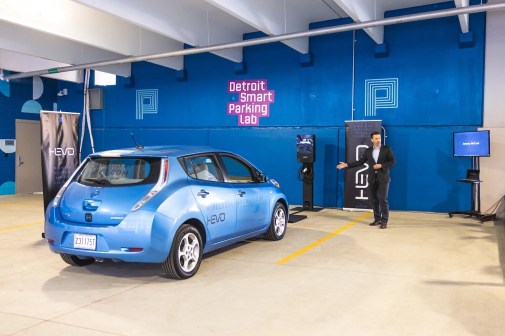FHWA pumps $50 million into ‘advanced’ transportation technology

Ten state and local agencies and university programs have received grant funding from the U.S. Department of Transportation’s Federal Highway Administration to deploy data-collecting and connected-vehicle systems on roadways this year, along with “many advanced technologies on the horizon,” according to a recent announcement by FHWA Administrator Nicole Nason.
The FHWA awarded a total of $49.6 million on Dec. 31 to test “Advanced Transportation and Congestion Management Technologies Deployment,” or ATCMTD, strategies that could one day be used as national models to reduce traffic and improve vehicle-to-vehicle and vehicle-to-infrastructure communications. The ten grantees will deploy a variety of “smart infrastructure” in the form of connected traffic signals, along with sensors for pedestrians, vehicles and air-quality, creating test beds for cutting-edge technology that could be expanded in the future if they’re shown to improve safety and efficiency.
“This $49.6 million in grant funding will support innovative solutions to improve connectivity and help prepare America’s transportation systems for the future,” U.S. Transportation Secretary Elaine L. Chao said in a press release.
The University of Michigan received the largest of the ten grants awarded this year; nearly $10 million will go toward the deployment of “smart” intersections and connected autonomous vehicle technology in Ann Arbor, Michigan, which has become a hotbed of autonomous vehicle testing in the last few years. The university has operated MCity, a 32-acre advanced mobility research and testing facility designed to simulate the driving conditions of a small city, since 2014, as well as an autonomous vehicle research lab co-operated by Ford.
The San Diego Association of Governments, the area’s primary planning and transportation agency, received the second-largest grant, with $9.2 million going toward safety and efficiency enhancements in southern San Diego. The agency will implement a transportation management software that integrates security with tolling and connected vehicle apps.
Nashville, which received a $1.5 million grant to improve congestion in its downtown area, will spend the next 24-30 months designing and implementing a traffic plan with new sensors and traffic signals.
The FHWA said it received 46 applications for ATCMTD grants this year, with requests totaling $205 million. Other recipients include Dallas, transportation departments in Georgia, Maine and Utah, as well as regional agencies in Pinellas County, Florida, southern Nevada and the Virginia Port Authority.






